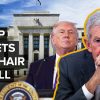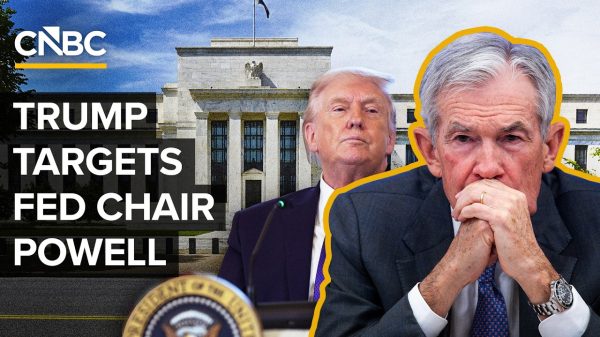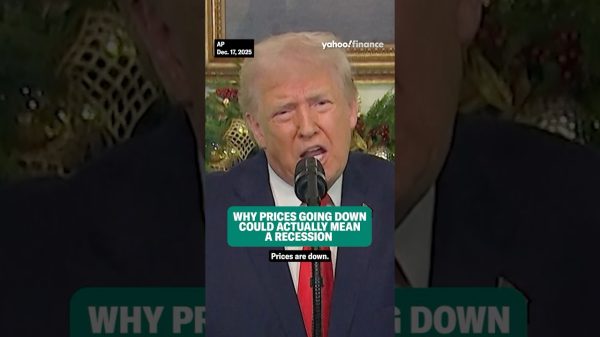Berkshire Hathaway’s
operating profit after taxes rose 12.6% to $8.1 billion in the first quarter on higher investment income and increased insurance profit.
Berkshire Hathaway
(ticker: BRK.A, BRK.B) bought back $4.4 billion of stock in the period, up from $2.6 billion in the fourth quarter but below the $6 billion to $7 billion quarterly pace in 2020 and 2021.
Berkshire’s operating earnings, which exclude changes in the value of the company’s huge investment portfolio, were up 14% to $5,537 per Class A share, Barron’s estimates, above the FactSet consensus of $5,371.
There was a bigger increase in Berkshire’s per-share operating profit during the first quarter than in the absolute level of operating earnings because of the benefit of the company’s buyback program, which lowered shares outstanding.
Total earnings in the first quarter surged to $35.5 billion from $5.6 billion in the first quarter of 2022, reflecting a large increase in the value of the company’s equity portfolio.
Apple
(AAPL), whose shares gained more than 30% in the period, dominates the portfolio, accounting for about 45% of it.
Berkshire appears to have pared its stake in
Chevron
(CVX) by 20% to 132 million shares in the first quarter based on information in the 10-Q report.
Berkshire held $21.6 billion of Chevron on March 31 based on information in the 10-Q, down from $30 billion at year-end when the stake totaled about 167 million shares.
Based on Chevron’s stock price of $163.16 on March 31, that would imply a Berkshire holding of about 132 million shares of the energy giant.
Berkshire had after-tax realized gains on sales of investments of $1.7 billion in the first quarter, which could have reflected gains on the Chevron sale.
Buffett’s appetite for stocks was greatly diminished in the first quarter as Berkshire sold $13.3 billion of equities including an estimated $6 billion of Chevron and bought just $2.9 billion. It was a net seller of more than $10 billion of stock.
This compares with a buying binge in the first quarter of 2022 when Berkshire was a net buyer of about $41 billion of stocks including Chevron,
Occidental Petroleum
(OXY),
Paramount Global
(PARA), and
HP
(HPQ).
Berkshire’s stake in Apple appeared to be unchanged in the first quarter at around 915.7 million shares worth about $159 billion based on Apple’s closing price of $173.57 on Friday.
Paper gains in Berkshire’s equity portfolio totaled $23.4 billion in the first quarter against losses of nearly $1 billion in the year-earlier period.
CEO Warren Buffett urges investors to focus on the company’s operating profit excluding paper gains or losses on the investment portfolio as the best way to gauge financial results. The paper gains or losses hinge on stock market levels and aren’t indicative of Berkshire’s underlying earnings power.
Berkshire’s book value, or shareholder equity, rose 7% in the first quarter to $347,800 per Class A share, Barron’s estimates based on information in the 10-Q released in conjunction with results.
Berkshire shares are now trading for about 1.4 times the March 31 book value, in line with the average price-to-book ratio in recent years.
Berkshire still sits on a large amount of cash and equivalents that totaled just over $130 billion on March 31, up from nearly $129 billion at the end of 2022.
The first-quarter earnings gain was driven by a 68% jump in its insurance investment income to $2 billion after taxes, which largely reflects the sharp increase in short-term interest rates.
Buffett shrewdly kept Berkshire’s cash parked in Treasury bills and other short-term instruments rather than buy longer-term bonds and the company now is benefiting from 5% T-bill rates, up from under 1% at the start of 2022.
Berkshire’s insurance operations showed an underwriting profit of $911 million in the first quarter, up from $167 million in the first period of 2022.
This largely reflected a swing to an underwriting profit of $703 million at Geico, the company’s auto insurer, compared with a loss of $178 million in the first quarter of 2022.
Berkshire said in its 10-K report for 2022 that it expected Geico to turn an underwriting profit this year. That scenario is playing out and likely will cheer Berkshire investors who have been waiting for a turn in that business. Geico is being led by Todd Combs, who doubles as an equity manager for Berkshire.
After-tax profit at Burlington Northern Santa Fe, Berkshire’s largest single operating unit, were down 9% in the first quarter to $1.2 billion. There also was a drop in earnings at Berkshire Hathaway Energy, the company’s utility business, to $416 million from $775 million in the first quarter of 2022.
Barron’s estimates that Berkshire repurchased about $160 million of stock from the end of first quarter through April 25, the date of the 10-Q report.
Berkshire’s asset base, the largest of any U.S. company, hit nearly $1 trillion in the first quarter, ending the period at $997 billion, up from $948 billion at the end of 2022.
The situation at Geico is notable. The auto insurer saw a decline of 2% in written premiums in the first quarter to $10 billion. That reflected a jump of 15.2% in premiums per policy, offset by a drop of 13%, or 2.4 million policies in force. Geico has been losing market share to its arch rival
Progressive
(PGR), which like Geico, actively sells auto policies to consumers directly.
Geico had an underwriting profit margin of 7% in the first quarter, compared with an underwriting loss of 2% in the year-earlier period.
Berkshire said Geico “significantly reduced advertising over that period, which contributed to the reduction in policies-in-force.”
The first-quarter results are the first since Berkshire more than doubled its stake in Pilot Travel Centers, the operator of truck stops, to 80% in late January. In the next two months, Pilot earned $83 million after taxes on $9.5 billion in revenues, reflecting the low margin in that business.
Berkshire paid about $8 billion for the additional 41.4% stake, which values the company at about $20 billion.
Berkshire said the drop in profits at Burlington Northern Santa Fe was “attributable to lower overall freight volumes and higher fuel and other operating costs.”
“After-tax earnings of Berkshire Hathaway Energy decreased 46.3% in the first quarter of 2023 compared to 2022. The decrease reflected lower earnings from the U.S. regulated utilities, other energy businesses and real estate brokerage businesses,” the company said. Berkshire operates one of the larger real-estate brokerage firms in the country.
Berkshire’s Class A stock finished Friday at $491,840, up 0.5%, while the Class B stock ended at $323.88, up 1.2%.
Write to Andrew Bary at [email protected]
Read the full article here











